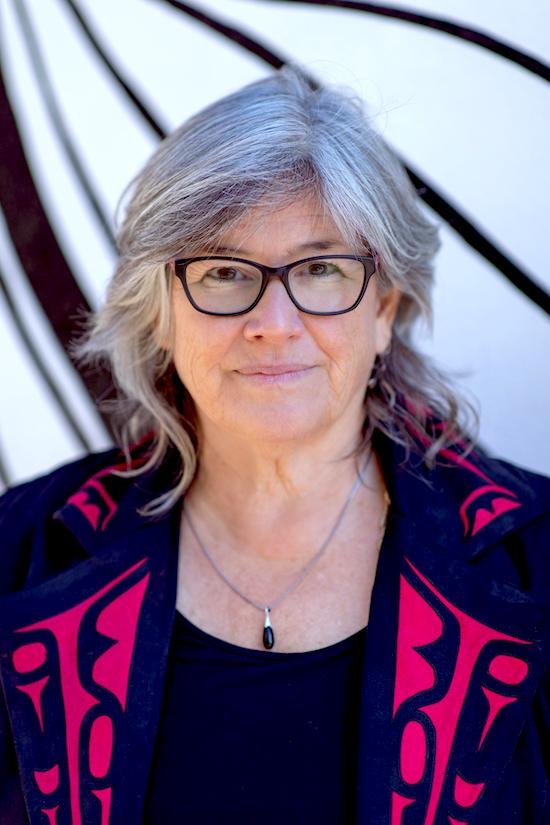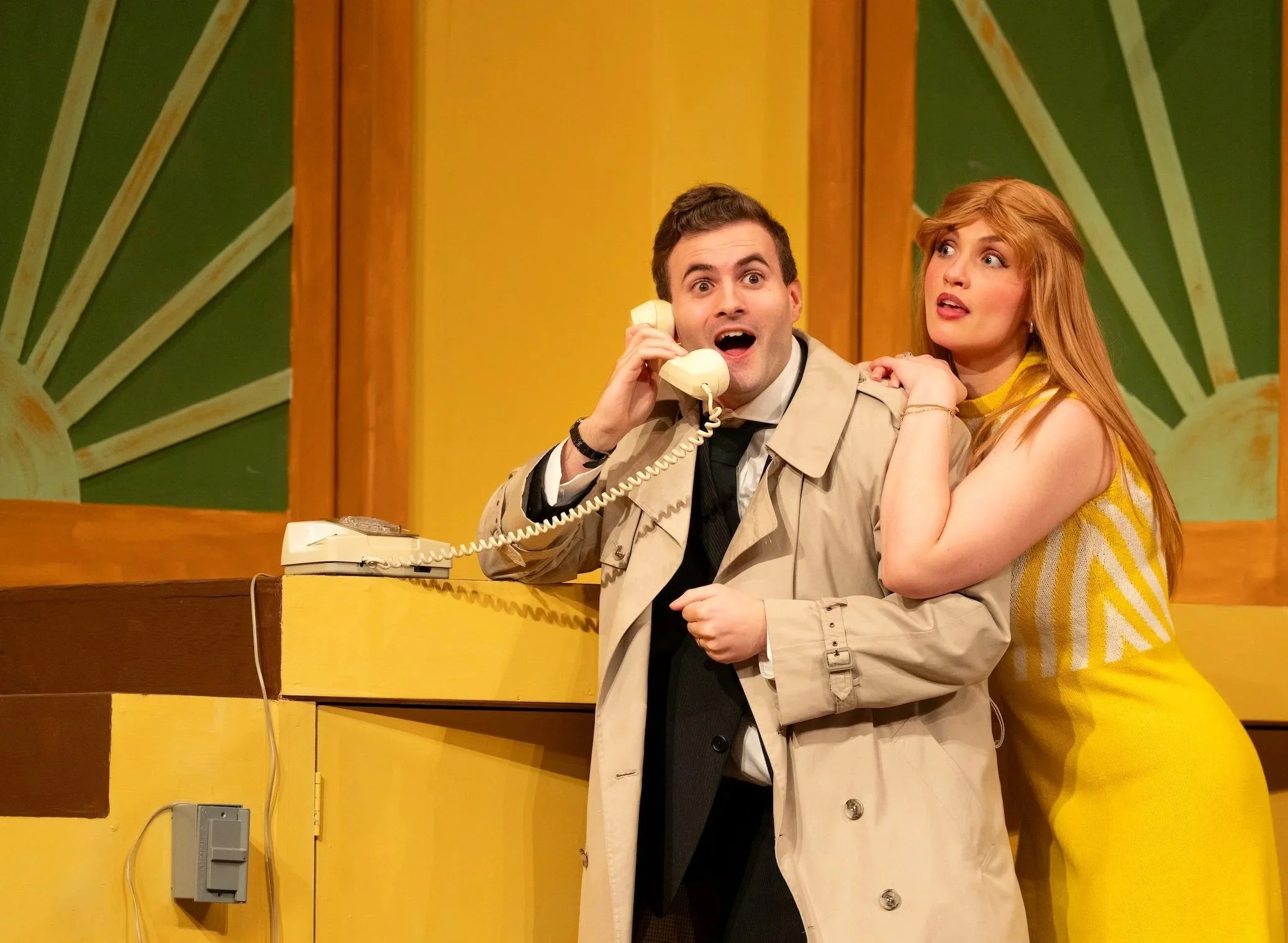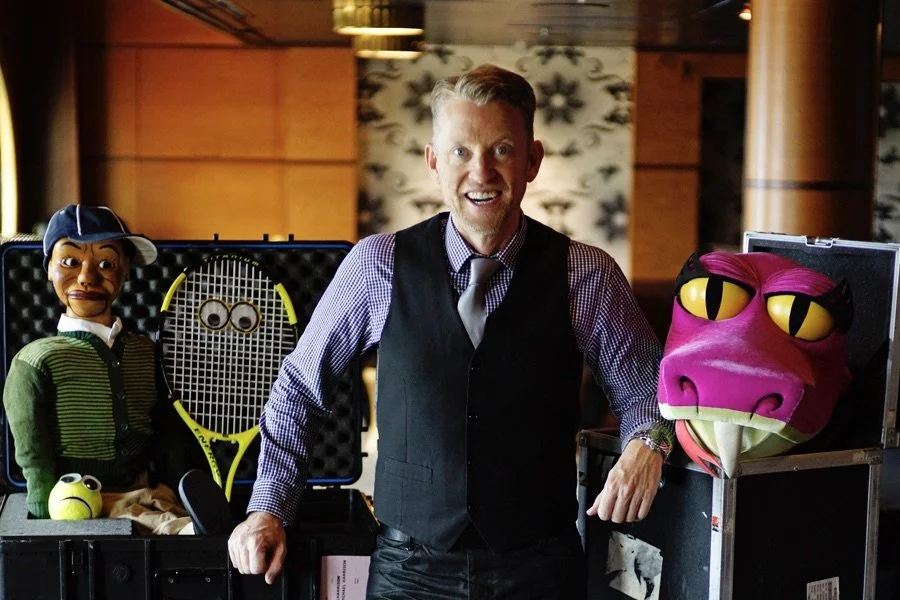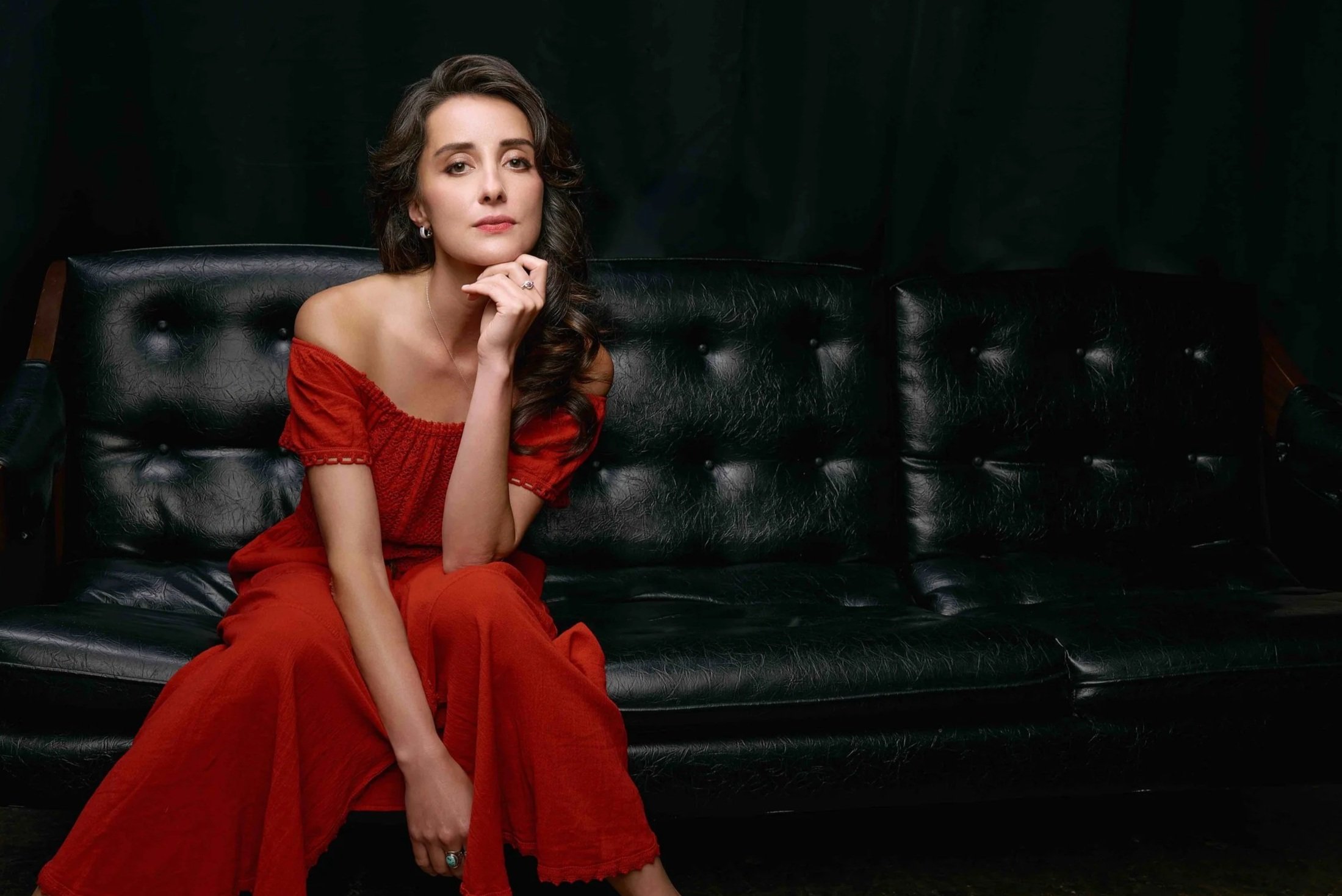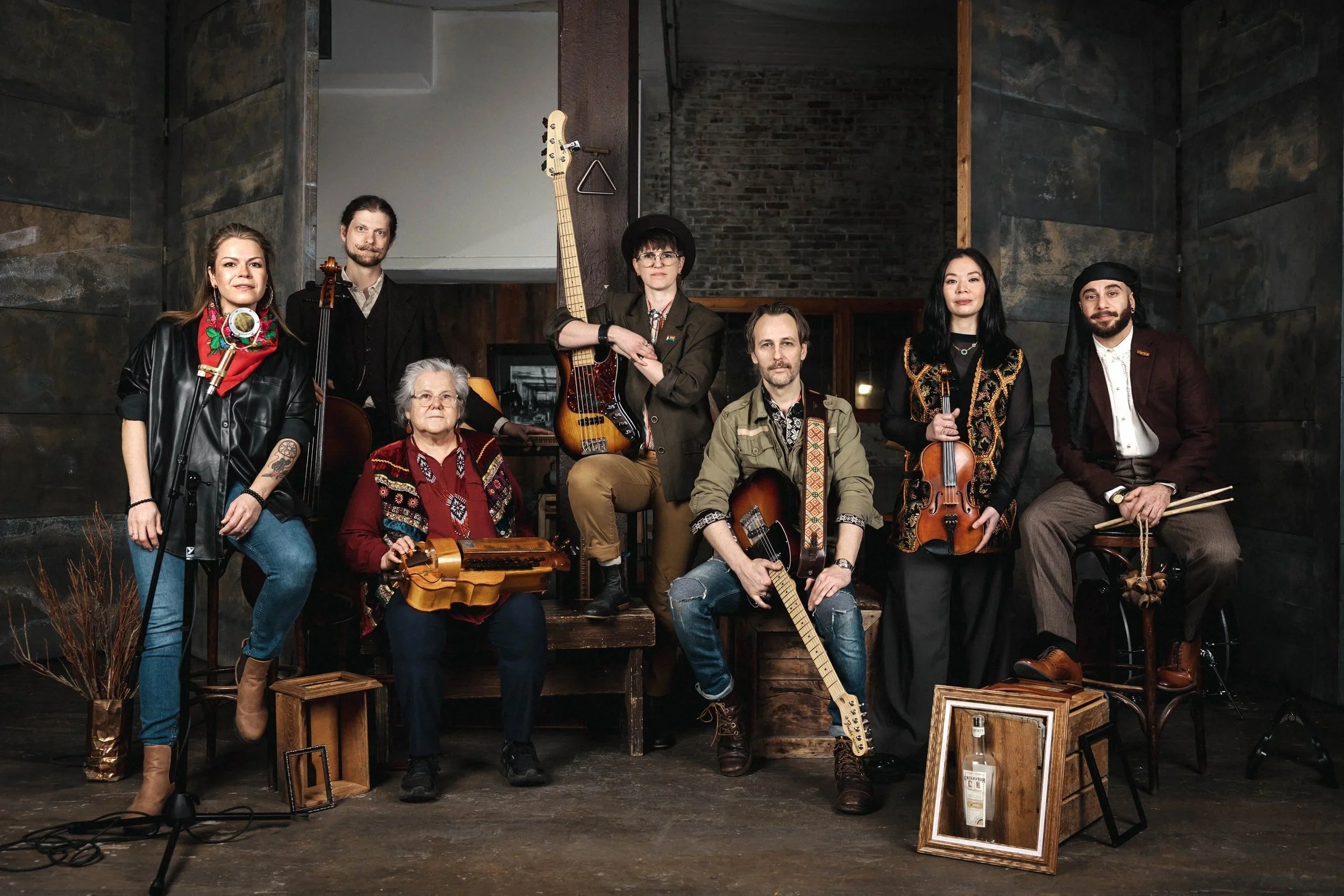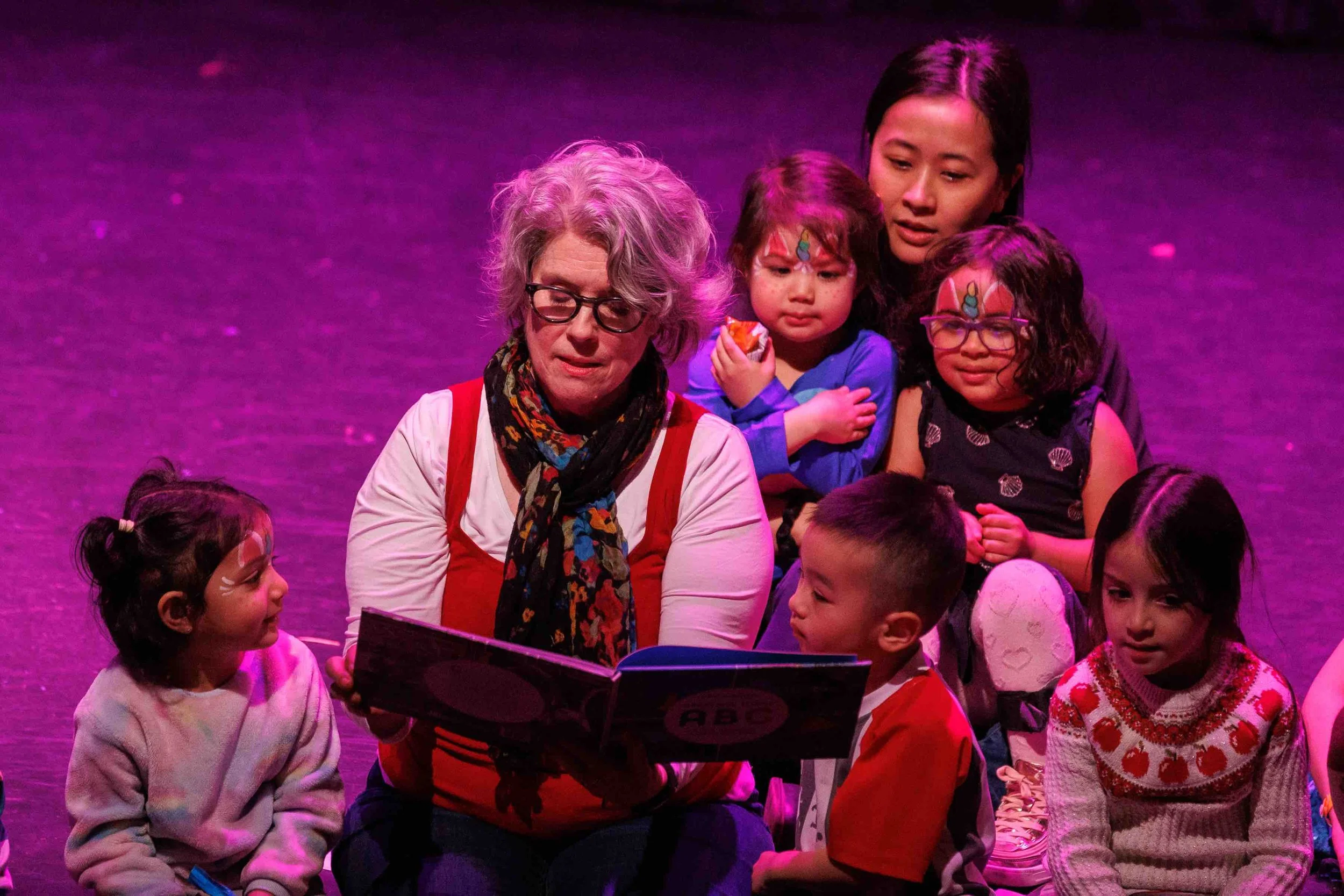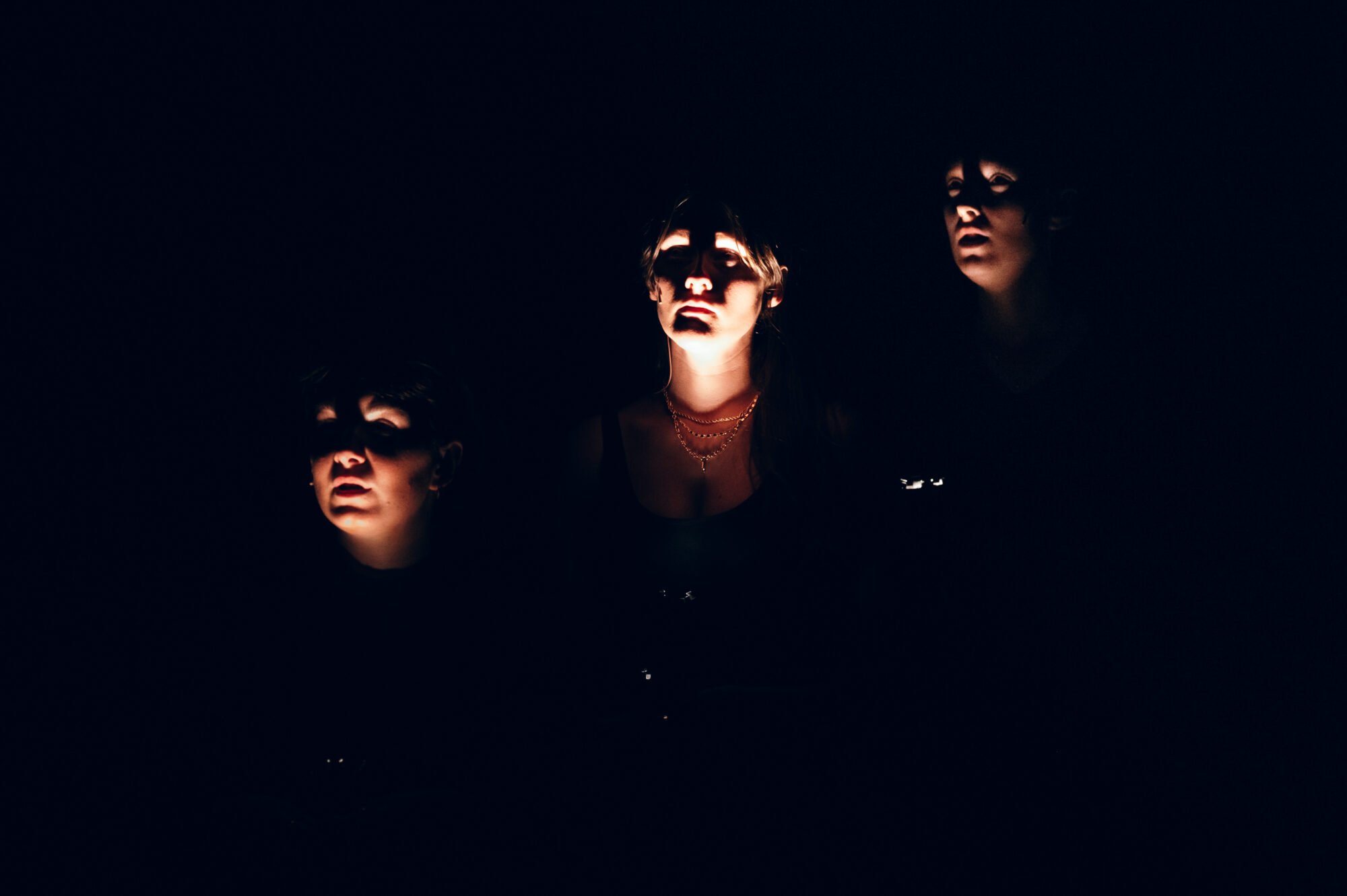In Reconciling, playwright Yvette Nolan invites viewers to experience what it's like to go unheard, in 360 degrees
Boca del Lupo produces theatre artist’s first experiment in VR, a trip to relationship “therapy” inspired by Indigenous struggle
Alana Hawley Purvis and Manami Parvis lean in to listen in the new virtual-reality play Reconciling.
Boca Del Lupo premieres Reconciling at The Fishbowl, via headsets from June 21 to 24, alongside Pochsy at the Airport Hotel, as part of LivePerformance360
BEFORE AWARD-WINNING Canadian playwright Yvette Nolan began writing her first virtual-reality play for Vancouver’s Boca del Lupo, she had to try out a VR headset first.
From there, Nolan, whose heritage is mixed Kitigan Zibi Anishinabeg First Nation and Irish, began understanding the unique potential of 360-degree film to put the viewer in the shoes of someone else and experience the world from a different perspective. Especially an Indigenous perspective.
The result is Reconciling, VR theatre-film hybrid having its world premiere, via headset, at Boca Del Lupo’s Fishbowl space on Granville Island this week.
“I thought, ‘There's an interesting position for the viewer to be put in: what is it like if you cannot be heard, and you're in a relationship with people who sincerely want to be in relationship with you, but they still can't hear you?’” says the artist, speaking to Stir from the Stratford Festival, where she’s directing Frances Koncan’s Women of the Fur Trade.
As for the setting, Nolan asked herself: Where do people in a relationship go when they can’t communicate? The obvious metaphorical location she chose was a therapist’s office, immersing the viewer with live actors in the VR film directed by Boca del Lupo’s Sherry J Yoon.
In Reconciling, the dryly comic film at first seems like a straightforward session of couples’ counselling, the therapist (Manami Hara) making the space comfortable with everything from blankets to Himalayan salt and smudge, trying to encourage open conversation, with actor Alana Hawley Purvis on hand as a disgruntled… Partner? Friend? Community member?. “Whatever it is, it’s an intimate relationship that is in trouble,” Nolan hints.
Soon it becomes clear the session is about the struggle toward a larger sense of reconciliation.
“Everything is relational, right?” Nolan says. “We live here on this land together. You know, Indigenous folks, non-Indigenous folks, newcomers: we all live here on this land, we have to figure out a way to hear each other. And so how do I, when a relationship is in trouble—as we find ourselves in this moment—try to find a way forward in reconciliation? What does that mean?
Yvette Nolan
“You have to do your own work. As Indigenous folks, we're willing to work with you, but we can't teach you because we've been trying for however many hundreds of years. We've been saying this and saying this, and you're not listening. So, when a relationship is in trouble, we go to a counsellor. That was the metaphor I used: they're not hearing each other and therefore we're going to put them into a counselling situation where this other his interlocutor can maybe make people hear.”
Nolan drew on her own experience of therapy, which she turned to after news broke that ground-penetrating radar had detected about 200 unmarked graves outside the Kamloops Indian Residential School. Nolan was struggling with the notion that the evidence was portrayed as a “discovery” when Indigenous people had known and talked about the graves for decades.
“I was in trouble—I was kind of frozen, because my community, my people were either reaching out to me and going, ‘Are you okay?’ Or they were reaching out to me and going, ‘I'm not okay,’” she says. “How do I deal with this? And I didn't know who I could talk to, because I knew everybody was struggling with it. And I had to go see a therapist, which I hadn't done in decades. I went in to talk about how mad I was.
“We knew, the Indigenous people of this land knew, that there were bodies—they knew that children had disappeared,” she continues. “I mean, the residential schools were built with graveyards. So when the rest of the Canadians ‘discovered’ it and we're told that and we're so shocked and horrified: there was something about that that was infuriating.”
Though that specific subject doesn’t work its way into Reconciling, that enduring feeling of not being heard becomes visceral as you sit still in the therapist’s chair, able to look all around the room.
In the end, what Nolan may be most trying to achieve through her first experiment in virtual reality is deeper listening as a way into reconciliation. The theatre artist was pushed out of her comfort zone to create her first VR film—and with Reconciling, she’s pushing viewers out of theirs, too.
“As Canadians, we often think we are listening but we often don't listen, or we don't listen to the end of the sentence,” she reflects. “Or we start offering solutions before we've actually heard it. And what this does is it actually gives the viewer the opportunity to feel what it's like to not be listened to, to not be heard, and then maybe there's a way of understanding 'Oh, this is what it's like when someone's telling me what it's like to be Indigenous, or what it's like to be silenced or what it's like to feel erased.'”



